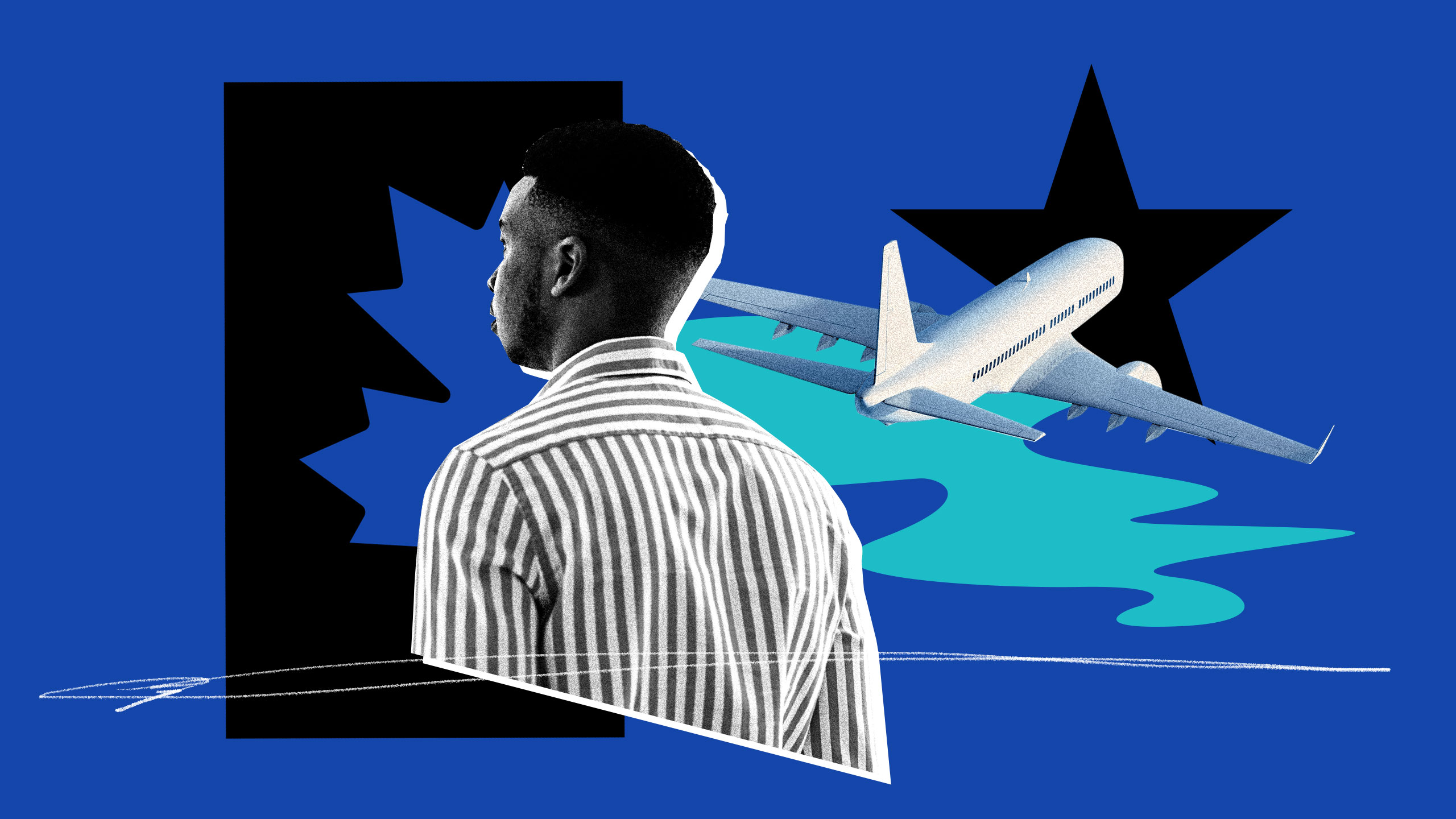Issah Habib, a 41-year-old Ghanaian gay man, fled his home country in 2016 out of fear of being persecuted because of his LGBTQ+ identity. According to Maggie Yeboah, Habib’s friend and the former president of the Ghanaian Union of Manitoba, Habib and a group of other Ghanaian men crossed the border into Manitoba after traveling through several countries including the United States on their way to Canada.
The group came to Canada, Yeboah says, “with the hope that… Canada will give them a fair trial, Canada will listen to them.”
Prime Minister Justin Trudeau promised to make the resettlement of LGBTQ+ refugees a priority, and in some ways, that has been true. For refugees who come through official channels, Canada can be a very welcoming country, but for people like Habib, that isn’t the case. His claim was rejected due to inconsistencies in his Immigration and Refugee Board (IRB) testimony between a signed declaration from 2016 and a more recent appeal hearing, according to CBC.
Now, Habib is missing and likely to be deported if he’s found. His friends and allies in Manitoba are telling his story in the hope that they will be able to shed light on inequities in Canada’s immigration system.
Immigration lawyer Nicholas Hersh has worked on many cases like Habib’s. According to Hersh, LGBTQ+ claimants are often denied because they are unable to prove their sexual orientation to the Immigration and Refugee Board. “If the board member does not believe you are gay, there’s no requirement to assess your risk as a gay man in case of return to your country of origin,” Hersh tells Xtra.
While Habib confirmed to the CBC that he is, indeed, a gay man, convincing immigration authorities of that fact is not the only challenge that he and other LGBTQ+ asylum seekers face in having their claims processed. Often refugees are inhibited in their testimonies because of language barriers, untreated mental health issues or discomfort with disclosing details of their romantic and sexual histories, under what can be invasive questioning.
According to Yeboah, Habib’s first language is a Ghanaian dialect, Hausa, a language which it is difficult to find translators for in Canada. “A person like Issah has a minimum education from Ghana,” she says. “He doesn’t speak English very well. He will speak, he will understand, but not very well.”
Despite the obstacles, Habib has been persistent in his quest for safety. After his first hearing in 2016, Habib spent years working at Exceldor Cooperative, a chicken plant in Blumenort, Manitoba. As he waited for a final decision from the IRB, he became involved in his community and excelled in his work. Habib received multiple workplace awards and was always involved in the local Ghanaian Independence Day and Eid celebrations, according to Yeboah.
After his asylum claim was rejected, Habib appealed his case, working long hours in order to pay legal fees. In this time, Yeboah says, he had to switch lawyers twice: His first attorney died and his second shut down his practice. It wasn’t enough, however, and after a November 2021 hearing, his appeal was also rejected. He was told to appear for a COVID-19 test on the morning of Jan. 21 and to present at the airport for deportation that evening.
But according to Yeboah, Habib never showed up. She does not know his current whereabouts. She feels the urge to share his story, she says, in order to shed light on the conditions facing LGBTQ+ asylum seekers like her friend.
“All this process, we think, is unfair,” Yeboah explains. Policies have been very unfair to them, and if Canadians can hear this—if we can have the chance to explain this to the immigration system—they can make some adjustments.”
“In Canada—even though we do stand for human rights, we stand for diversity, all that—our process is very cruel.”
Debbie Owusu-Akyeeah is the director of the Canadian Centre for Gender and Sexual Diversity and a queer Ghanaian-Canadian herself. She understands why Habib may not have wanted to return to Ghana. While there has been hostility toward LGBTQ+ people in Ghana dating back to the days of British colonization, she says that 2021 in particular marked a shift in anti-LGBTQ+ politics in the country.
A “family values” bill was introduced in Ghana in November that would strengthen the country’s pre-existing anti-LGBTQ+ laws. Section 104 of the Ghanaian Criminal Code prohibits sexual intercourse “in an unnatural manner,” which has frequently been interpreted to mean sex between people of the same gender (although arrests under the law are rare, according to Owusu-Akyeeah). This new bill, however, would explicitly make it a crime to be gay, bisexual or trans.
“As soon as certain issues become debatable amongst politicians, it shifts public discourse and has the most impact on the most marginalized people,” Owusu-Akyeeah tells Xtra. “We’re seeing increased amounts of eviction of people who are suspected to be gay, continued physical violence, and that violence being recorded and disseminated online.”
The “family values” bill has led to an increase in arrests and harassment of those perceived as being queer or trans, regardless of whether they even hold those identities, according to Human Rights Watch. “Whoever has money can bribe the police organization, so running to the police doesn’t help,” Yeboah says. “You can be killed.”
Despite the dire conditions in their home country, LGBTQ+ Ghanaians face an uphill battle when proving to Canadian immigration authorities that they are under threat. Alongside language barriers and navigating immigration bureaucracy, there remains a widespread perception among Canadians that the situation in Ghana is not bad enough to warrant refugee status, according to Owusu-Akyeeah.
“Ghana has never been seen in a very long time as a country that people leave on refugee grounds because there isn’t civil strife, there aren’t targets on ethnic minorities, as compared to our neighbors,” she says. “Ghana is not seen as a country that one flees from.”
In the end, Yeboah says, Habib’s efforts to seek asylum have made no difference.
“In Canada—even though we do stand for human rights, we stand for diversity, all that—our process is very cruel,” she says. “And so indirectly, the process tells them, we don’t want you here, even though we say we welcome you.”


 Why you can trust Xtra
Why you can trust Xtra


